Your Ultimate FAQ Guide for Incoterms 2020
Welcome to the FAQ guide of Incoterms 2020.
The Incoterms 2020 is a compilation of 11 independent rules provided by the ICC – International Chamber of Commerce. It determines responsibility for the selling of goods in foreign transactions between buyers and sellers.
It is important for you to clarify the duties, costs, and risks to be assumed by purchasers and sellers during each Incoterms law. When you get acquainted with Incoterms it helps to boost the transaction smoothly by specifically distinguishing who is in charge of each move.
This FAQ guide will help you to understand all the details of Incoterms 2020.
- What Is Incoterms 2020?
- What Does FOB Or CIF Mean?
- What Is The Effective Date Of Incoterms 2020?
- Are Incoterms Mandatory?
- What Happens If We Do Not Have Incoterms?
- What Is Better EXW Or FOB?
- How Many Incoterms Are There In 2020?
- What Is The Most Common Incoterm?
- How Many Categories Are There For Incoterms 2020?
- Which Incoterm Is Best For The Buyer?
- Which Incoterms Are Cheapest For The Seller?
- What Are The Major Changes In Incoterms 2020?
- What Are DAP And DDP?
- Who Pays DAP Freight?
1. What Is Incoterms 2020?
The Incoterms 2020 is a list of the ICC – International Chamber of Commerce’s 11 specific terms of trade for global shipping and transaction.
ICC released Incoterms 2020, the latest version of famous trading conditions for merchandise distribution. It offers businesses and traders around the world certainty and transparency of trading through the air, ocean, road, or inland watery shipping.
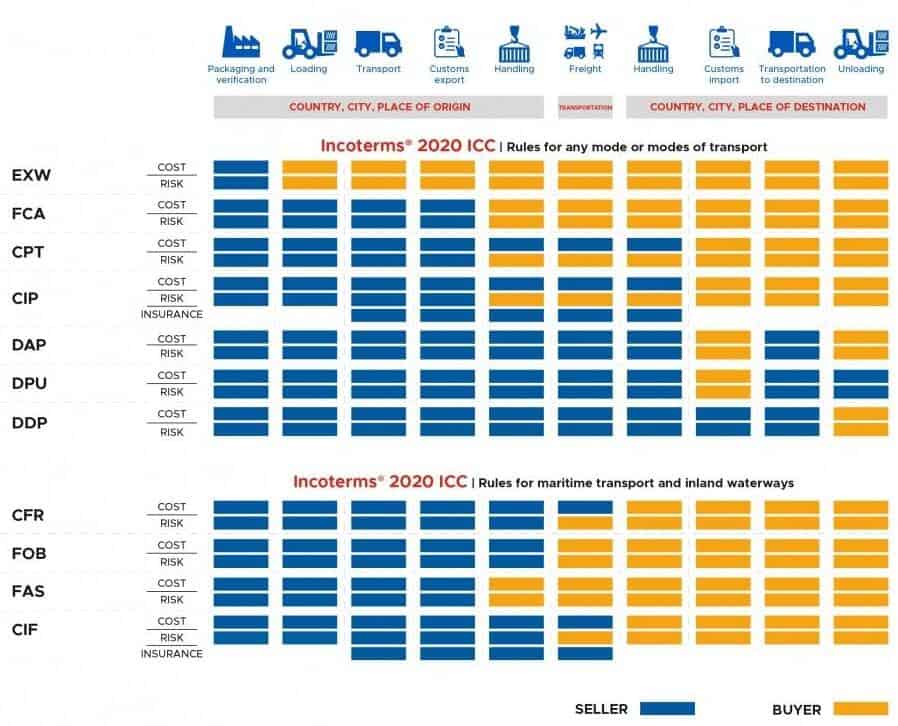
The Incoterms 2020 guidelines are now revised and divided into two groups that represent transport modes. Of the 11 guidelines, seven exist for any shipping method and four for the ocean, and inland shipping method.
2. What Does FOB Or CIF Mean?
Are you confused about choosing between FOB and CIF from China to any international route?
So, I’ll explain to you how to import from China with confidence utilizing the FOB and CIF Incoterm.
What’s the best feature?
This guideline will walk you through the basics of the term, including its significance, benefits, FOB and CIF shipping choices, and how they function.
This guide will provide you with everything you require.
Let’s get to the point right immediately.
FOB Incoterm
Let’s get deeper into FOB Incoterm used in foreign shipping.
The term FOB refers to the point at which liability and expense are transferred from the seller to the purchaser
This is essential for the secure delivery of your products from China.
So, let me explain what FOB stands for.
The letter F stands for “free,” and it refers to the obligation of your supplier during the delivery process.
The term “on board” corresponds to when the shipments are loaded into a carrier and are ready to be shipped.
This means that when the sellers load the products into a ship, they are no longer responsible.
To get a better idea about FOB Incoterm, watch the video –
CIF Incoterm
In this case, your supplier makes the merchandise on the ship.
After the items are on the vessel, the impact of this risk or damage to the items passes. In order to take the merchandise to the destination port, the supplier will negotiate and bear the cost for goods.
Your supplier often entails insurance cover arrangements against the possibility of the buyer losing or damaging the product during the shipment.
You, the purchaser must remember that the vendor has to receive only minimal insurance protection underneath the CIF.
If you wish to get further insurance, you must either directly consent to the supplier or make your own additional insurance plans.
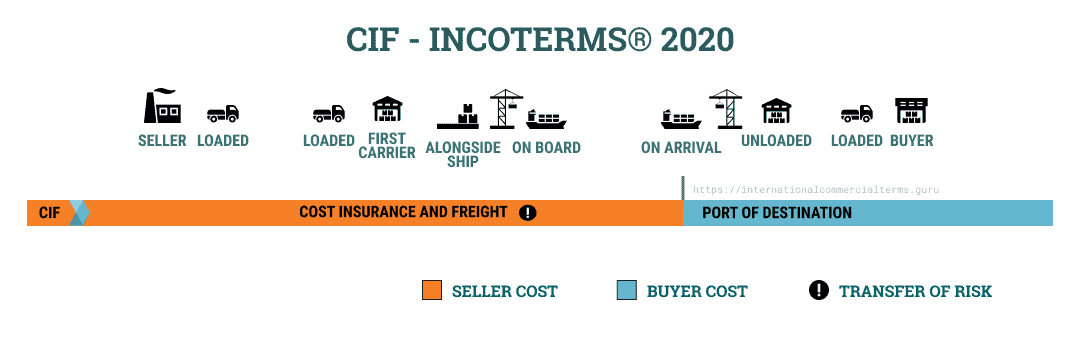
3. What Is The Effective Date Of Incoterms 2020?
The effective date of Incoterms 2020 is from 1st January 2020.
4. Are Incoterms Mandatory?
No, not really. The guidelines of Incoterms are not obligatory. It is not legislation passed by states, but rules accepted by the contracting parties.
In the end, the buyer and the seller must accept the obligations of each side and the expense and risk of the shipping prior to it occurring.
In China, Winsky Freight Forwarder can help you with Incoterms and other logistics support. We provide logistics services at a very reasonable price while maintaining world-class quality.
5. What Happens If We Do Not Have Incoterms?
If we did not have Incoterms the deal between the buyer and seller could not be observed as smoothly as it is now. It could lead to issues with supply and payment, and unforeseen costs and conflicts.
It may also lead to false customs statements with severe legal consequences. The key benefit of Incoterms is that all organizations that do foreign business use standardized language.
Specific words or acronyms provide clear rules both to suppliers and to shoppers to prevent uncertainty about the roles of each group and cost control.
6. What Is Better EXW Or FOB?
Are you confused between choosing ExW and FOB?
To determine which one is better between EXW and FOB, you need to understand the terms first.
EXW
EXW represents Ex Works, here the supplier is only liable for preparing the goods from their place of distribution. This is usually the warehouse.
And for the remaining freight expenses, you, the buyer will be accountable for delivering it to your desired location from the warehouse.

FOB
On the contrary, you will apply for FOB deals or for free shipping on board if transporting by ocean freight.
The processing of the goods, shipping them to the port and providing customs clearance, and bringing them into the ship is the responsibility of the seller.
There are no specific rules to decide which one is better.
Depending on your shipping goods, method and cost you have to choose which one is better for you.
7. How Many Incoterms Are There In 2020?
There are 11 guidelines in Incoterms 2020.
- The following Incoterms are applicable for all types of shipping transactions
- DDP stands for Delivered Duty Paid
- CIP stands for Carriage and Insurance Paid To
- EXW stands for Ex Works
- DPU stands for Delivered at Place Unloaded
- CPT stands for Carriage Paid To
- DAP stands for Delivered At Place
- FCA stands for Free Carrier
- The following Incoterms are applicable for the ocean and inland watery shipping transactions
- C&F stands for Cost And Freight
- FOB stands for Free On Board
- FAS stands for Free Alongside Ship
- CIF stands for Cost Insurance and Freight
8. What Is The Most Common Incoterm?
The top 5 common Incoterms are stated as follows –
1. EXW
When would you prefer EXW transportation?
So, I’ll go over everything there is to know about EXW China, including the basics, prices, threats, each party’s responsibilities, and how it operates, among other things.
Continue reading to find out more about China’s EXW shipping.
EXW stands for EX Works and is a three-letter framework.
It’s an Incoterm you’ve most likely come across while importing or attempting to transport Chinese goods.
Although the word is just a few letters long, failing to comprehend its details will cost you a lot of money.
What is the reason for this?
You could end up handling obligations and incurring costs that you hadn’t anticipated in your shipping schedule.
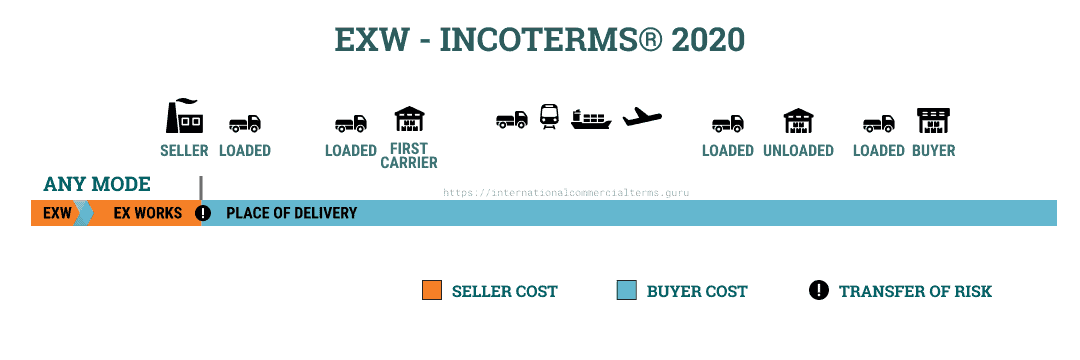
A single confusion or misconception of a word can jeopardize the whole purchasing process.
As a result, you must understand what this word means and what it implies.
To begin, EX Works is an Incoterm in which the buyer assumes all threats and responsibilities.
The term applies to any form of transportation including sea, air, rail, and road.
An EXW quote always expresses the cost of goods only, without all other costs.
2.DDP
This is extremely contrary to EXW in that the vendor offers. It takes care of all the expenses in connection with bringing the products to the preferred destination of the customer, including payment of any duty.
This seems to be potentially the most costly choice but it is the minimum coordination and planning liability for you.

3.FOB
Finding a vendor for your products in China is the first step in FOB shipment from China.
You will find out who your supplier is in a variety of ways.
However, prior committing to the import of your products, you must be pleased with your provider.
You can sign a FOB shipping contract with your vendor after you have found them.
Your vendor will then begin the cycle of shipping your commodities via FOB shipping.
They’ll arrange for your commodities to be loaded onto a vessel and transported to the port of origin in China.
They will offload from the carrier at the port of origin and perform the customs formalities process in China.
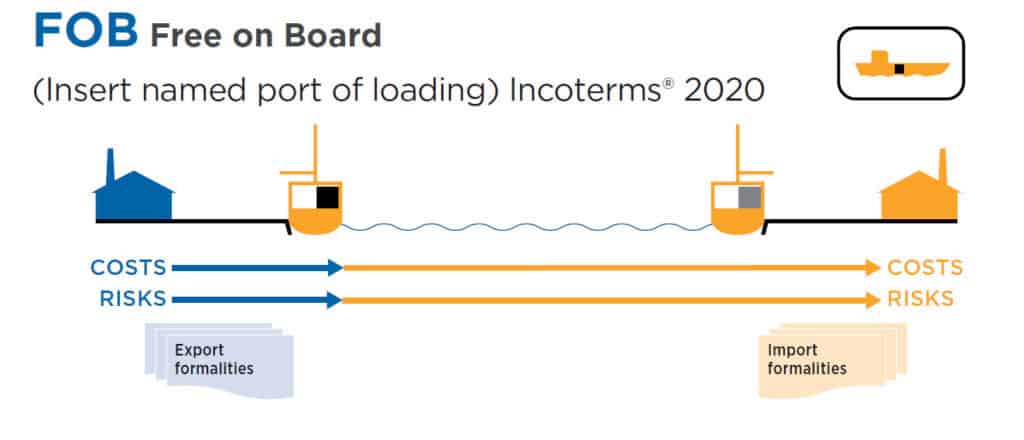
They would then mount the goods into a vessel and prepare them for shipping.
Your provider’s obligation ceases when the products are loaded onto the carrier and ready to be shipped from China.
From here, you will be liable for the payment, including the expense of recruiting the vessel and the insurance costs.
You will be responsible for both the offloading and customs processing costs after your shipments are delivered at your port of destination from China.
After that, you’ll make arrangements for the shipping of your commodities from the delivery point to your location.
4.CIF
It is yet another Incoterm, which is only valid for transport by the ocean or inland shoreline.
The vendor, like FOB, would ship the commodities and place them on board.
However, the vendor will also finance the sea freight and the insurance unlike the provisions of FOB.
You, the purchaser are accountable for the charges, including the offloading of the products from the cargo, upon arrival at sea.
Through B2B and B2C trades, you will witness this Incoterm widely employed.
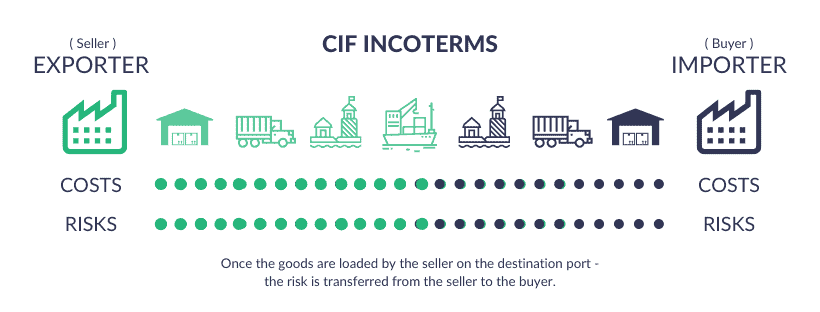
5. FAS
The supplier is solely responsible for the transfer of goods to the maritime and inland waterways from their end underneath this Incoterm.
However, when the goods have reached the port – you, the purchaser has to take them from there. And you have to clear the payment for the commodities that shipped, the sea freight, and the rest of the necessary payments when reaching the destined port for the shipment.
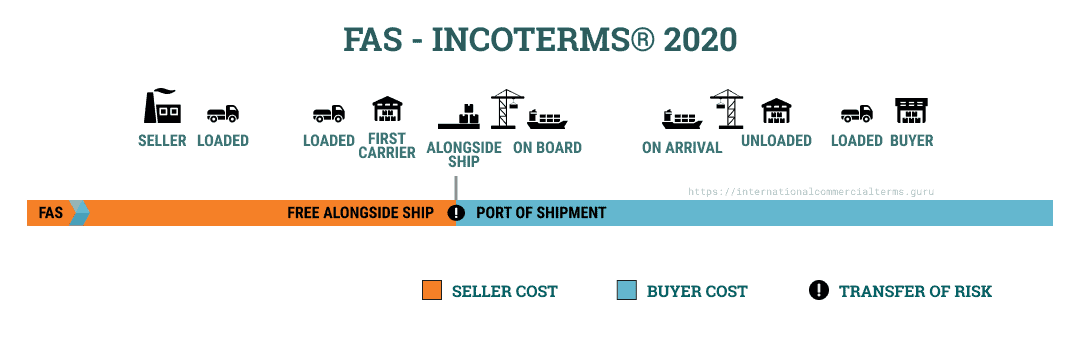
9. How Many Categories Are There For Incoterms 2020?
There are mainly four categories in Incoterms 2020. They are – C, D, E, and F.
Group C
The seller signs a freight deal with the forwarder in Category C – Main Carriage Pay and assumes the costs. The seller shall execute the export clearance in this situation. When the items are posted to the purchaser, the risk is passed.
The purchaser has to deal with these issues after the costs of loading relating to transportation and other activities. Group C covers CIF, CFR, CIP, and CPT rules.
Group D
Group D – Arrival implies the seller’s obligation to ship merchandise to a particular location or destination terminal. This category contains DDP, DPU, and DAP Incoterms.
Group E
In Group E, at the distribution point suggested by the vendor, the items are made accessible to the purchaser. The supplier shall not be bound by customs or shipment clearance and shall not share the loading liability and expenses.
Just Incoterms EXW can be found in Category E.
Group F
Group F, the supplier is obliged to export logistics services – Main Carriage Unpaid. Transportation and insurance premiums do not compensate the vendor. This group includes FOB, FAS, and FCA.
Are you having trouble deciding which Incoterm is best for you?
Winsky Freight has a solution for you. To get a free quote, simply contact us today.
10. Which Incoterm Is Best For The Buyer?
Firstly, Delivered Duty Paid, then Delivered at the Place, and finally Delivered at Place Unloaded are the most beneficial Incoterms for a global buying decision for importers.
The customs niceties in the land of entry, transportation to its grounds, and the discharge are the responsibility of the buyer exclusively. This is a safe idea if the customer has no knowledge in importing or does not know about the nation where he is purchasing.
International shipping, insurance, and offloading in the land of arrival at the port – the supplier will take responsibility for customs and logistical niceties.
11. Which Incoterms Are Cheapest For The Seller?
The cheapest Incoterm for the seller is EXW.
EXW
One of the most beneficial Incoterm for the supplier in a foreign transaction is EXW. Here, he just has to negotiate with getting the product ready to be shipped in his own amenities.
EXW is suitable for businesses if you have little to no export background or logistics expertise.
It’s also appropriate if you don’t know anything about the customer or if the address is an unfamiliar nation.
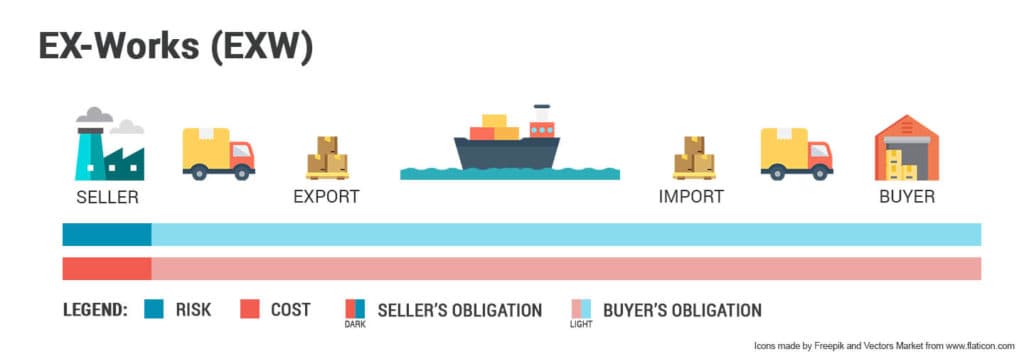
For the supplier, the Incoterms bidirectional Free Carrier and seagoing Free Alongside Ship, and there is Freight On Board are also viable options.
It only involves loading shipments, transferring them to the agreed-upon location – ports, and completing customs procedures.
12. What Are The Major Changes In Incoterms 2020?
The major changes in Incoterm 2020 are stated as follows-
- In the context of a lading bill with an on-board terminology and the Free Carrier law, this provision addresses displayed market need.
- Both Cost Insurance and Freightand Carriage and Insurance Paid To connect various degrees of insurance exposure.
- Organizes for transportation in Free Carrier, and Delivered at Place. It’s also applicable for Delivered at Place Unloaded, and Delivered Duty Paid modes.
- Delivered at Place Unloaded replaces the three-letter term DAT – Delivered at Terminal.
- Included in the carriage duties and costs are security-related provisions.
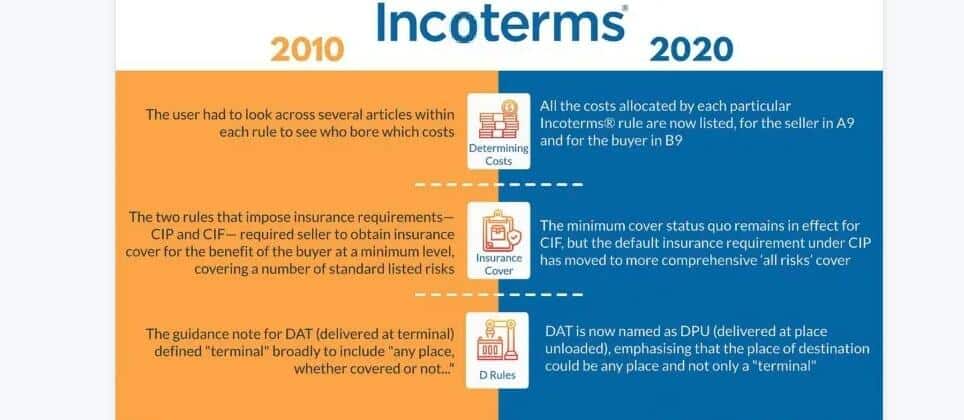
13. What Are DAP And DDP?
The terms DAP and DDP is stated as follows –
DAP
When a shipment is made on a DAP basis, the vendor is obliged for the goods’ transportation, including transportation costs, to the buyer’s specified location. The expenses of completing all essential import niceties are specifically excluded.
These are incurred on the purchaser, which means that the receiver is responsible for all duties incurred when importing into the country of destination.
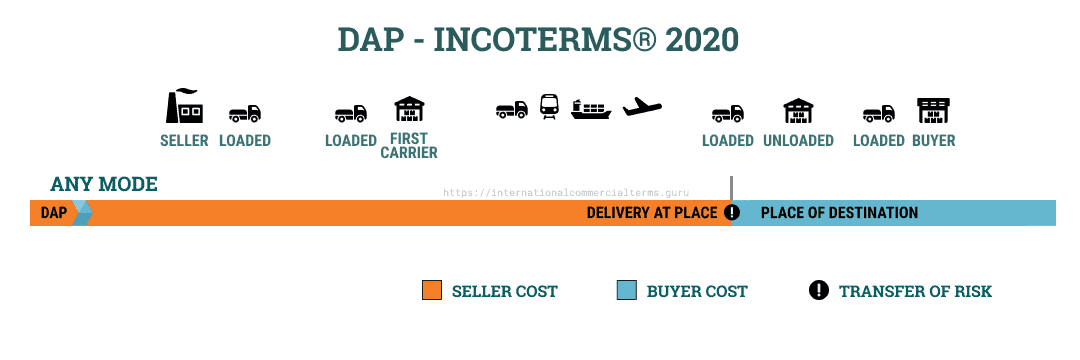
DDP
The supplier must transport the commodities at their own risk and cost to a location in the importing country for a shipment dependent on DDP. In addition to these prices, the seller will handle all niceties and submit all import duties.
DDP is similar to DAP but includes extra customs and tax handling. What does this mean for international clients? They are no further obliged to pay anything upon arrival, and the items are shipped as though they were a national shipment.
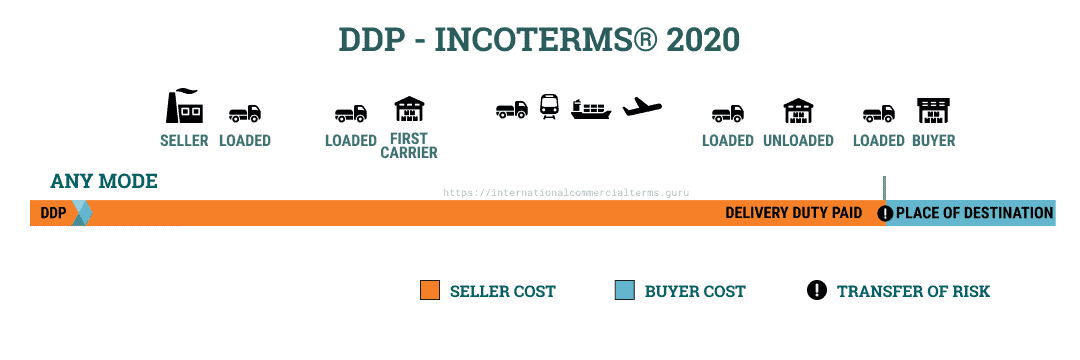
Difference Between DAP and DDP
In this case, you are only accountable for offloading under DDP.
Anything else is the supplier’s responsibility, including packaging, marking, freight, customs formalities, fees, and taxes.
In contrast, under DAP, the buyer is liable not only for offloading but also for clearing customs charges, and taxes. Based on which Incoterms you and your vendor agree to, you will be liable for such expenses and threats at a certain stage.
14. Who Pays DAP Freight?
The vendor is obliged for all shipping costs underneath the DAP Incoterm arrangement. Just the expenses of importing the cargo and unloading the shipment until it reaches the desired location are the responsibility of the purchaser.
Conclusion
The International Chamber of Commerce has released the new edition of the Incoterms 2020 regulations, which is copyright reserved. The new regulations take into account the most recent trends in commercial dealings.
All investment agreements should contain a reference to the Incoterms 2020 guidelines as of January 1, 2020, for a hassle-free transaction.
If you don’t know which is the best incoterm for you when you negotiate with your China supplier, contact Winsky Freight Forwarder to help you with choosing the best Incoterm for your commercial transaction and also for the shipping process.
Ask Free Shipping Quote
Our logistics team is on call to give you expert guidance and rates on your overseas shipment.
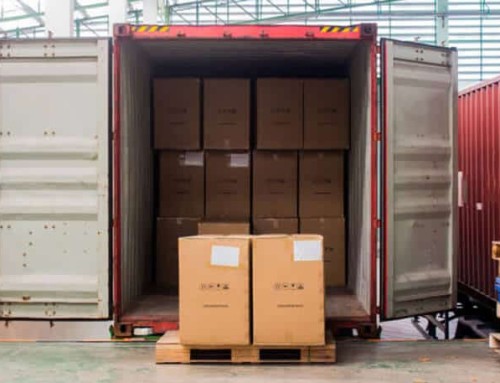
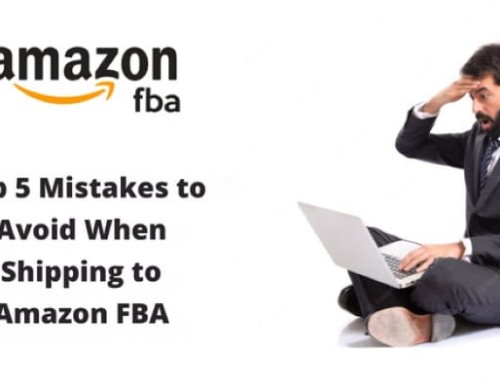
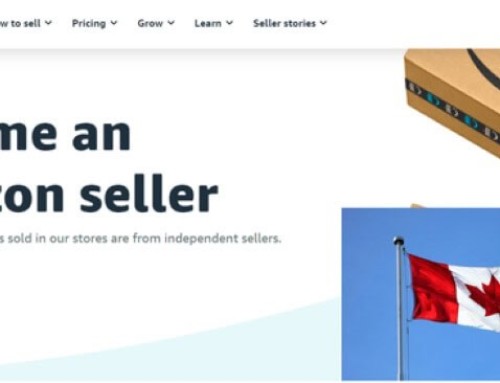

Leave A Comment